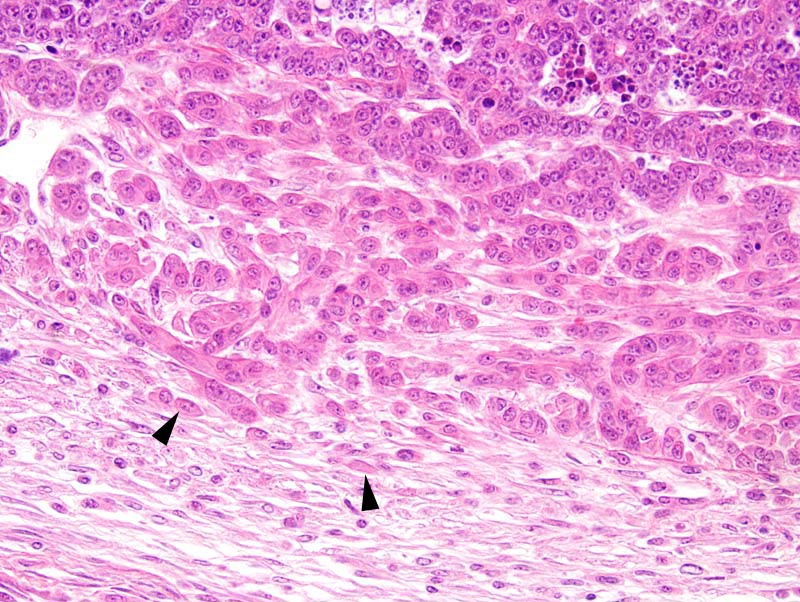Pathology Image Detail

Caption |
Early stage of epithelial to mesenchymal transition: the early stages of epithelial to mesenchymal transition is characterized by the acquisition of a more acidophilic cytoplasm by neoplastic cells while the ability to form lumens is lost. Nucleoli of spindloid neoplastic cells are smaller than nucleoli of epithelial neoplastic cells. Individual neoplastic cells with a spindloid phenotype are present in the stroma (arrowheads). As exemplified in this case, epithelial to mesenchymal transition often occurs at the periphery of the neoplasms. |
Description |
Adenocarcinoma, glandular, solid, with early epithelial to mesenchymal transition, mammary gland |
Age at Necropsy |
179 days |
Contributor |
Churchill GA (J:112750) |
Pathologist |
Mikaelian I (J:94320) |
Method |
H&E |
Model |
|
Strain |
|